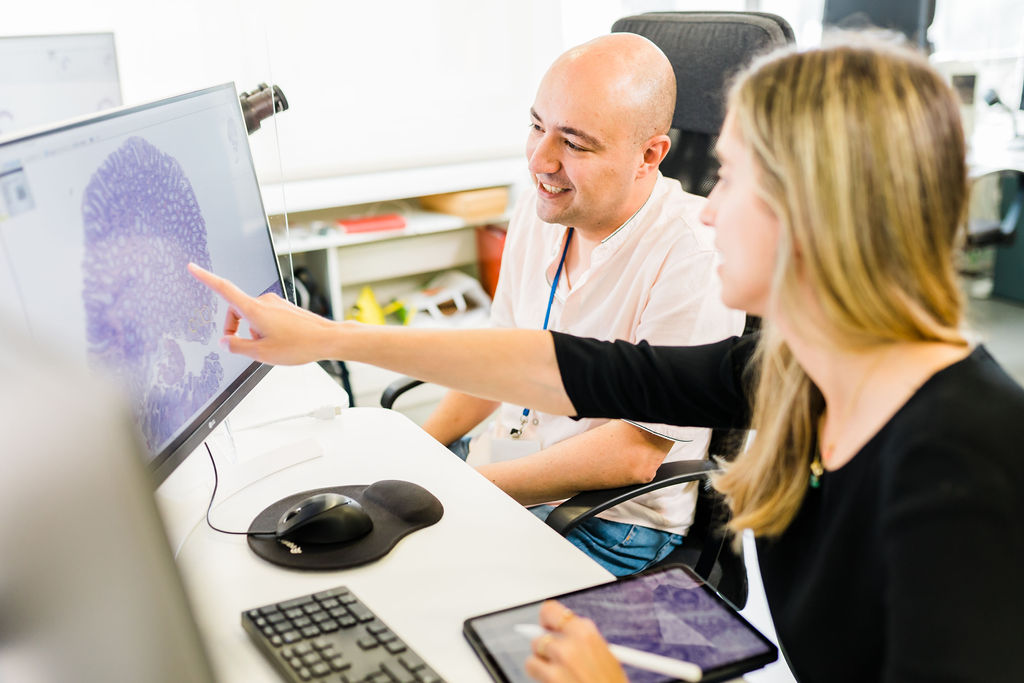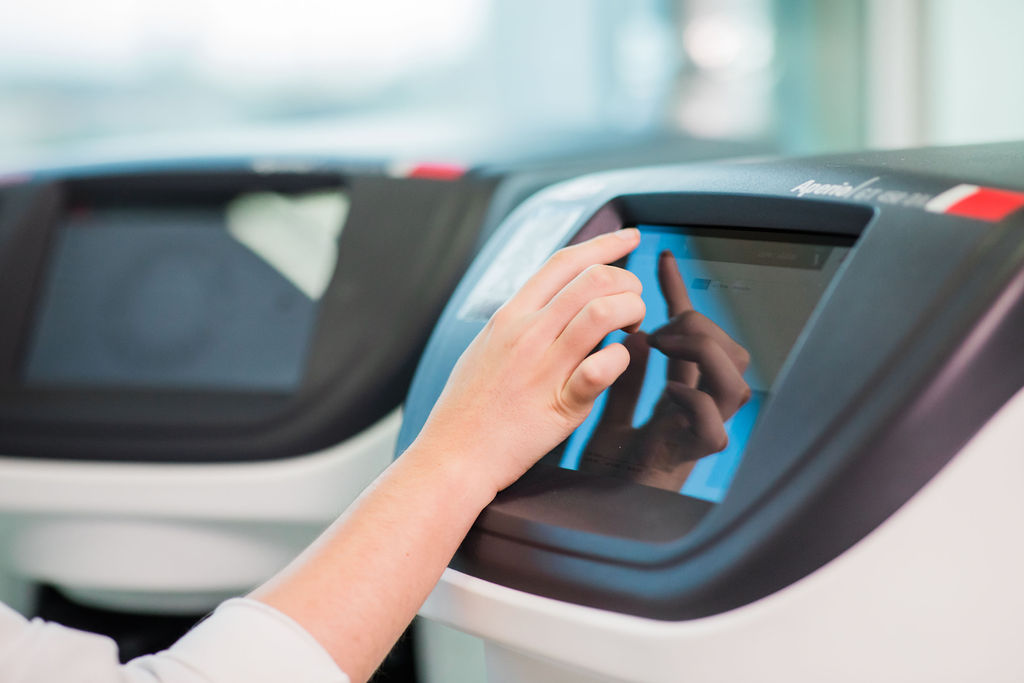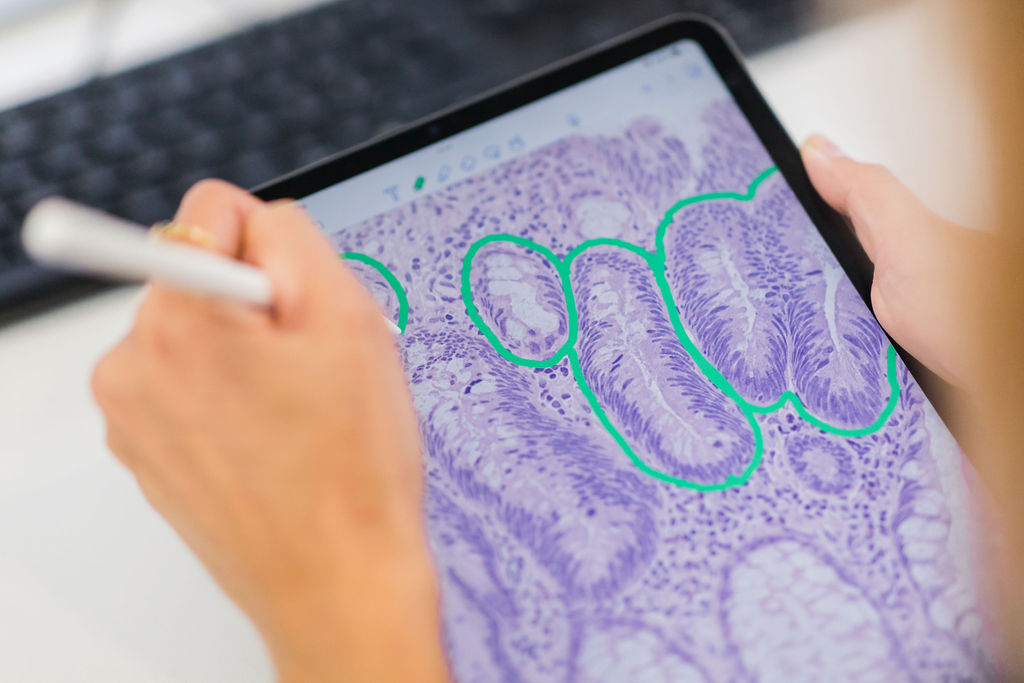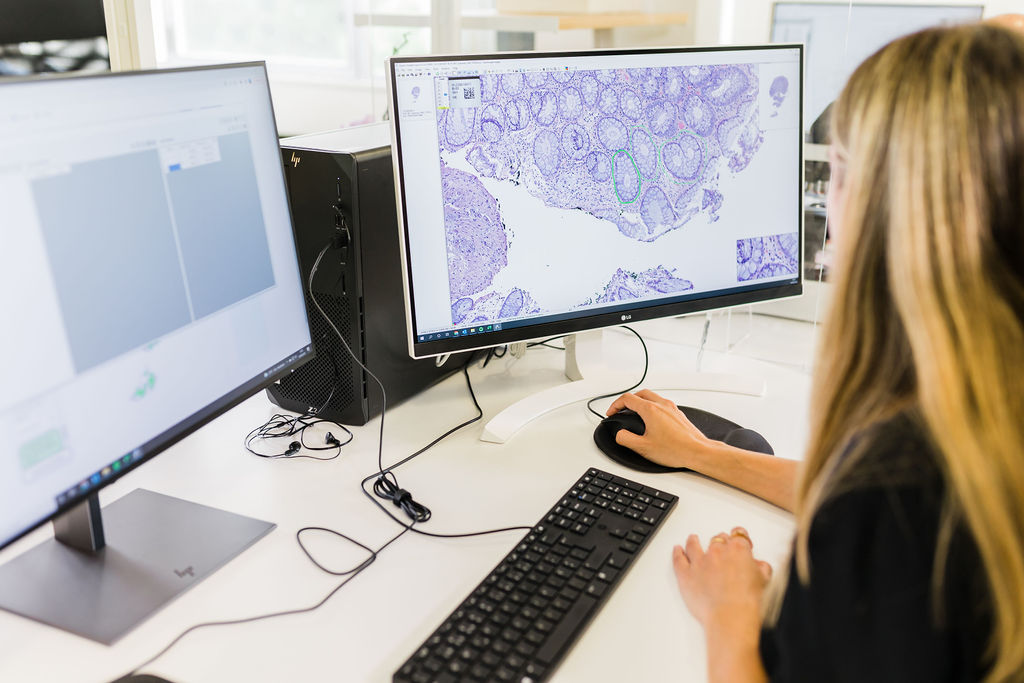Digital Pathology and Research in Computational and AI Fields
Investing in digital pathology has revolutionized the way we work.
Through state-of-the-art digital scanners, microscopic images are immediately available for diagnosis after sample processing.


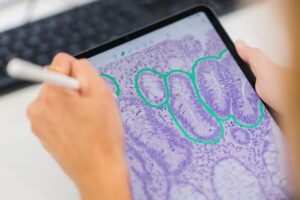
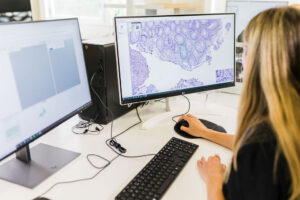
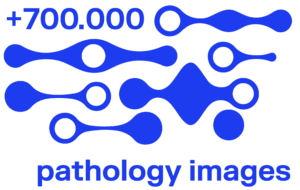
IMP Diagnostics has digitized over 700 thousand images to date, representing a significant library of pathology images.
Digital Pathology has allowed us to invest in the development of Artificial Intelligence-based diagnostic support algorithms, in collaboration with recognized national and international research centers.
One of the advantages of Digital Pathology is easy access to digitized cases and the ability to share them with colleagues, facilitating case observation by international experts.
Digital Pathology enables a more efficient workflow and faster diagnoses.
IMP Diagnostics is committed to making a difference in next-generation diagnostics and, consequently, in the health of our patients.


Reports According to International Guidelines
Reports prepared in accordance with the latest International Guidelines.
Standardization of reports and complementary diagnostic techniques by type of pathology and use of SNOMED classification for morphology and diagnosis.
Participation in Multidisciplinary Meetings
Presence of specialized pathologists in the context of therapeutic decision consultation, with the possibility of sharing microscopic images.


Partner Network
IMP is part of an international network of Reference Centers, based in Europe and America, that are consulted for second opinion or to review cases.
Acting as an extension of the local team, we ensure conclusive results for the physician and the patient, which translates into an effective and prompt response.
Speed of Response
IMP has invested in the automation and technological updating of its equipment and software.
With the aim of greater standardization and speed of processes, this investment also allows full traceability of the sample, from collection at the client to report delivery.
We have internal processes designed to respond within 48 hours to urgent cases, and we continuously work on reducing response times, aware of the impact that timely diagnosis has on the therapeutic success of various pathologies.
